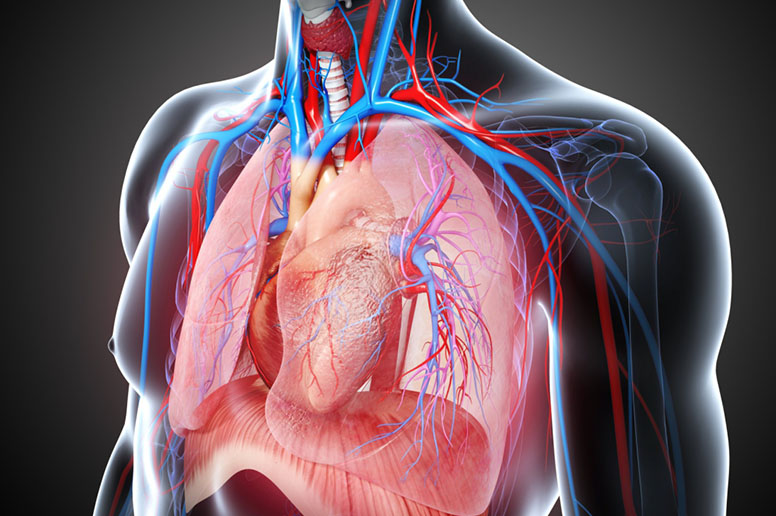Thoracic Surgery in Thane
When it comes to thoracic surgery, it refers to a specialized medical field that focuses on surgical procedures related to the organs within the chest. This includes critical organs like the heart, lungs, esophagus, and diaphragm. Thoracic surgery is a vital component of healthcare, addressing a wide range of conditions, from lung cancer to heart disease and trauma. Over the years, advancements in medical technology and surgical techniques have made thoracic surgery safer, more effective, and minimally invasive.
For those seeking thoracic surgery in Thane, Mercurrey Hospital stands out as a trusted healthcare provider. With its state-of-the-art facilities, skilled surgeons, and compassionate care, the hospital has become a key destination for patients requiring thoracic surgeries in the region. Whether it’s a complex procedure or a routine surgery, Mercurrey Hospital is known for providing comprehensive treatment options tailored to meet the needs of each patient.
What is Thoracic Surgery?
Thoracic surgery involves medical procedures that treat diseases, injuries, or disorders of the chest, including the lungs, heart, esophagus, and other organs within the thoracic cavity. The goal is to repair or remove damaged tissues, treat conditions like cancer, and improve overall organ function.
This field includes both open surgery and minimally invasive techniques, depending on the condition being treated. The expertise of thoracic surgeons ensures that patients receive the best possible care, with careful consideration for their recovery and well-being.
Types of Thoracic Surgery
There are several different types of thoracic surgeries, each focusing on a specific organ or health concern. These include:
- 1. Lung Surgery: This is performed for conditions like lung cancer, emphysema, or infections. Common procedures include lobectomy (removal of a lung lobe) and pneumonectomy (removal of an entire lung).
- 2. Heart Surgery: Thoracic surgeons may also specialize in treating heart conditions such as coronary artery disease or congenital heart defects. They perform surgeries like bypass surgeries and valve replacements.
- 3. Esophageal Surgery: Conditions like esophageal cancer, acid reflux, and swallowing difficulties may require surgical interventions. Esophagectomy, or the removal of part or all of the esophagus, is a common procedure.
- 4. Diaphragm Surgery: The diaphragm plays a crucial role in breathing. Surgical procedures related to this area may be necessary for hernias or paralysis of the diaphragm.
- 5. Trauma Surgery: In cases of chest trauma caused by accidents or injuries, thoracic surgeons repair fractured ribs, lung injuries, or damage to internal organs.
- 6. Minimally Invasive Surgery: With advancements in technology, many thoracic surgeries can now be performed using minimally invasive methods, such as video-assisted thoracoscopic surgery (VATS), which reduces recovery time and minimizes scarring.
Common Conditions Treated with Thoracic Surgery
Thoracic surgery is essential for treating a variety of conditions. Some of the most common include:
- 1. Lung Cancer: Lung cancer is one of the most common reasons for thoracic surgery. Depending on the stage and location of the cancer, lung surgery may be necessary to remove the tumor, affected tissue, or even an entire lung.
- 2. Pneumonia or Lung Infections: Severe pneumonia or lung infections that do not respond to antibiotics may require surgical intervention. Thoracic surgeons remove infected tissue or drain abscesses in such cases.
- 3. Esophageal Disorders: Conditions like esophageal cancer, achalasia (difficulty swallowing), or gastroesophageal reflux disease (GERD) may require surgery to treat or correct the problem.
- 4. Traumatic Chest Injuries: Thoracic surgery is often necessary to repair injuries caused by trauma, such as car accidents or falls. Surgeons may repair damaged organs, fractured ribs, or punctured lungs.
- 5. Congenital Defects: Some patients may require thoracic surgery to address congenital heart defects or lung malformations present from birth.
- 6. Chronic Obstructive Pulmonary Disease (COPD): In advanced stages of COPD, patients may undergo surgery to remove damaged tissue or undergo lung volume reduction procedures to improve lung function.
How to Prepare for Thoracic Surgery
- 1. Consultation with the Surgeon: Your thoracic surgeon will evaluate your medical history, perform diagnostic tests, and discuss the surgical plan with you. This is an opportunity to ask questions and address any concerns.
- 2. Pre-Surgery Tests: Before surgery, you may need blood tests, imaging tests (such as CT scans or X-rays), and pulmonary function tests to ensure you’re in good health for surgery.
- 3. Fasting Before Surgery: You will be asked to fast for a specific period before the surgery. This helps to reduce the risk of complications during anesthesia.
- 4. Medication Adjustments: Your surgeon may ask you to stop certain medications before surgery, particularly blood thinners, to reduce the risk of bleeding.
Recovery After Thoracic Surgery
Recovery after thoracic surgery depends on the type of surgery performed and the patient’s overall health. Here’s what to expect:
- • Hospital Stay: Depending on the surgery, you may stay in the hospital for a few days or longer. During this time, your medical team will monitor your recovery and manage any pain or complications.
- • Pain Management: Pain is common after thoracic surgery, but it can be managed effectively with medications and other techniques like breathing exercises.
- • Physical Therapy: After surgery, you may need physical therapy to strengthen your lungs, improve breathing, and regain mobility.
- • Follow-Up Appointments: Regular follow-up visits to your surgeon are necessary to monitor your recovery and catch any potential issues early.



